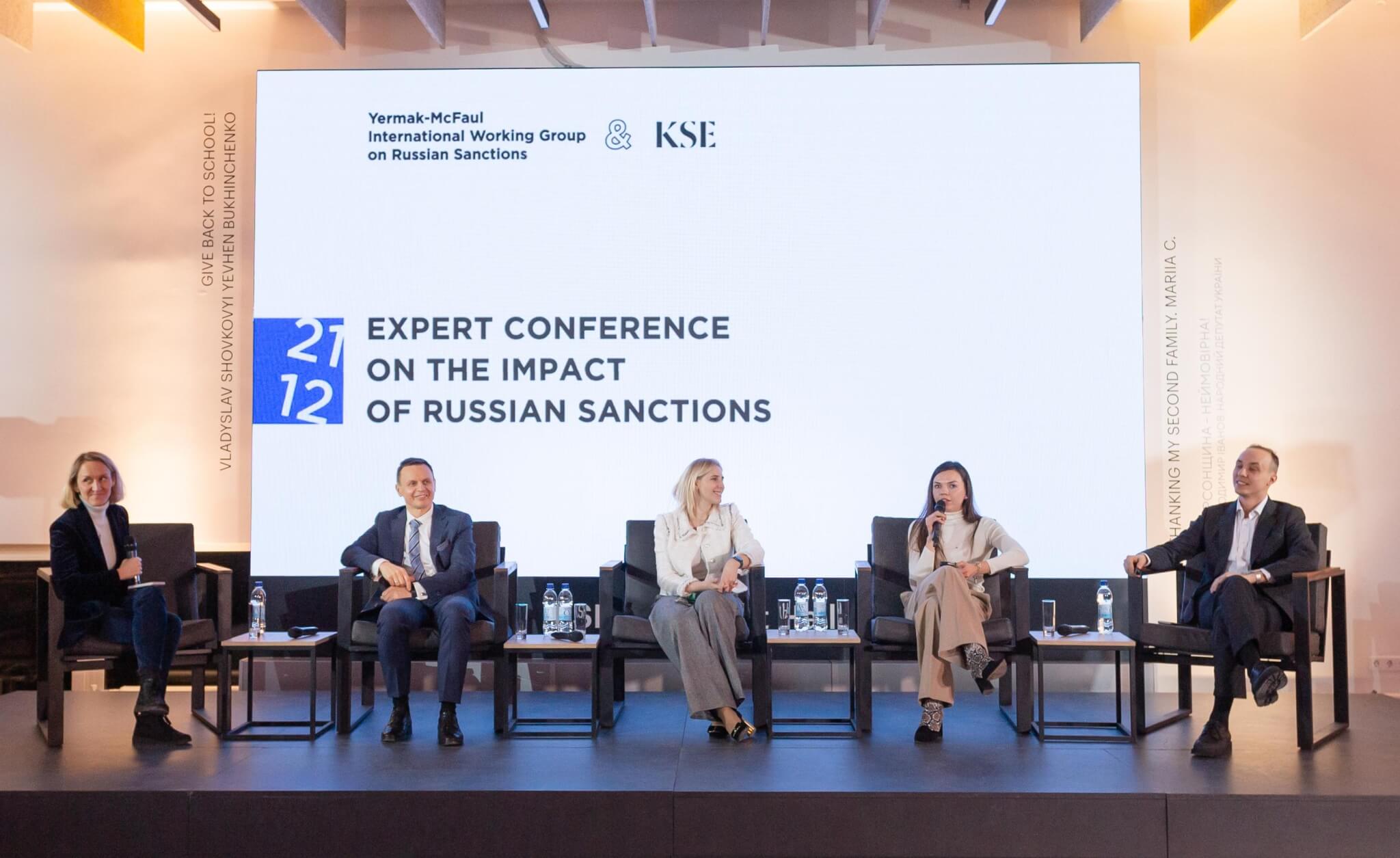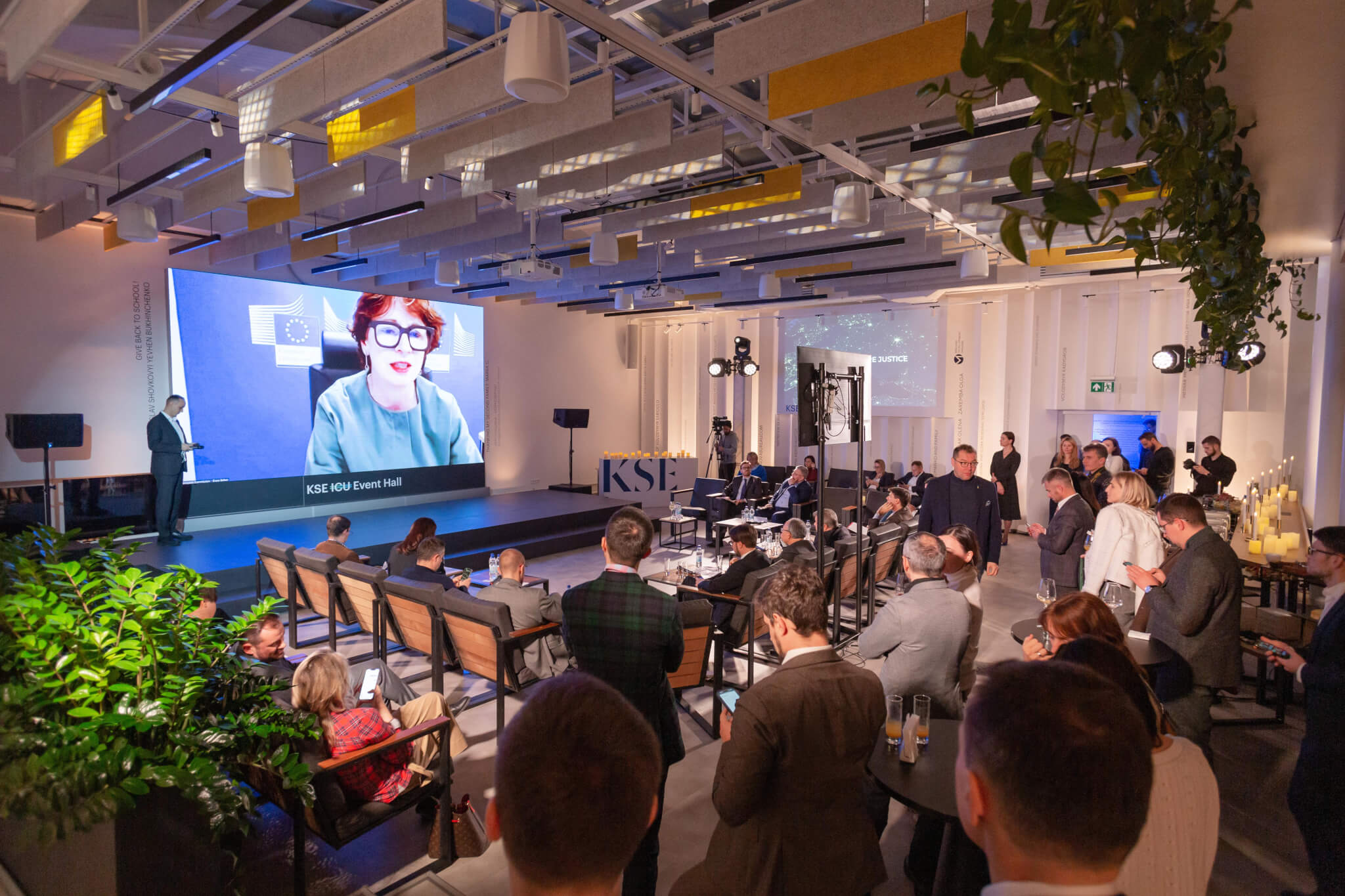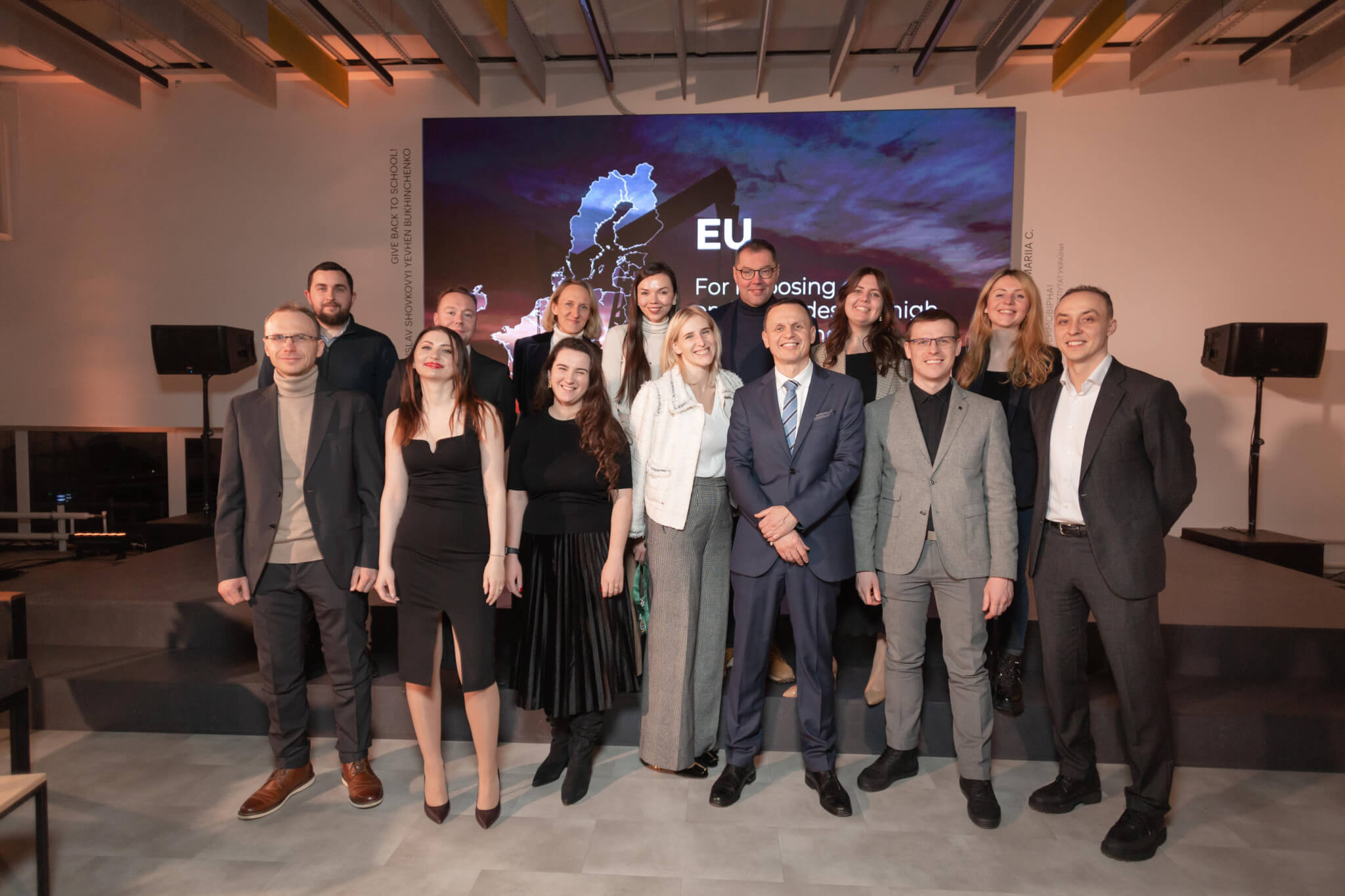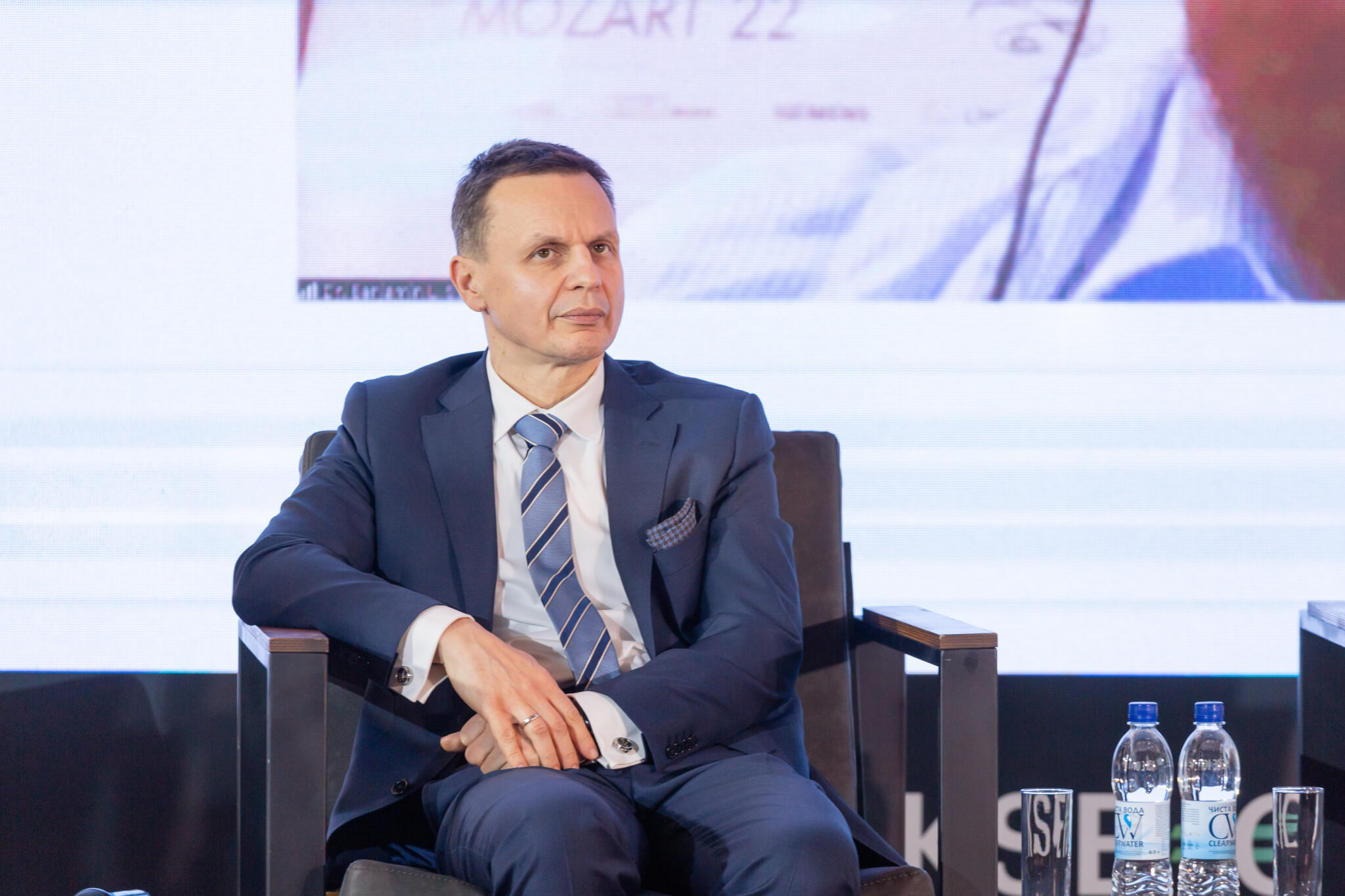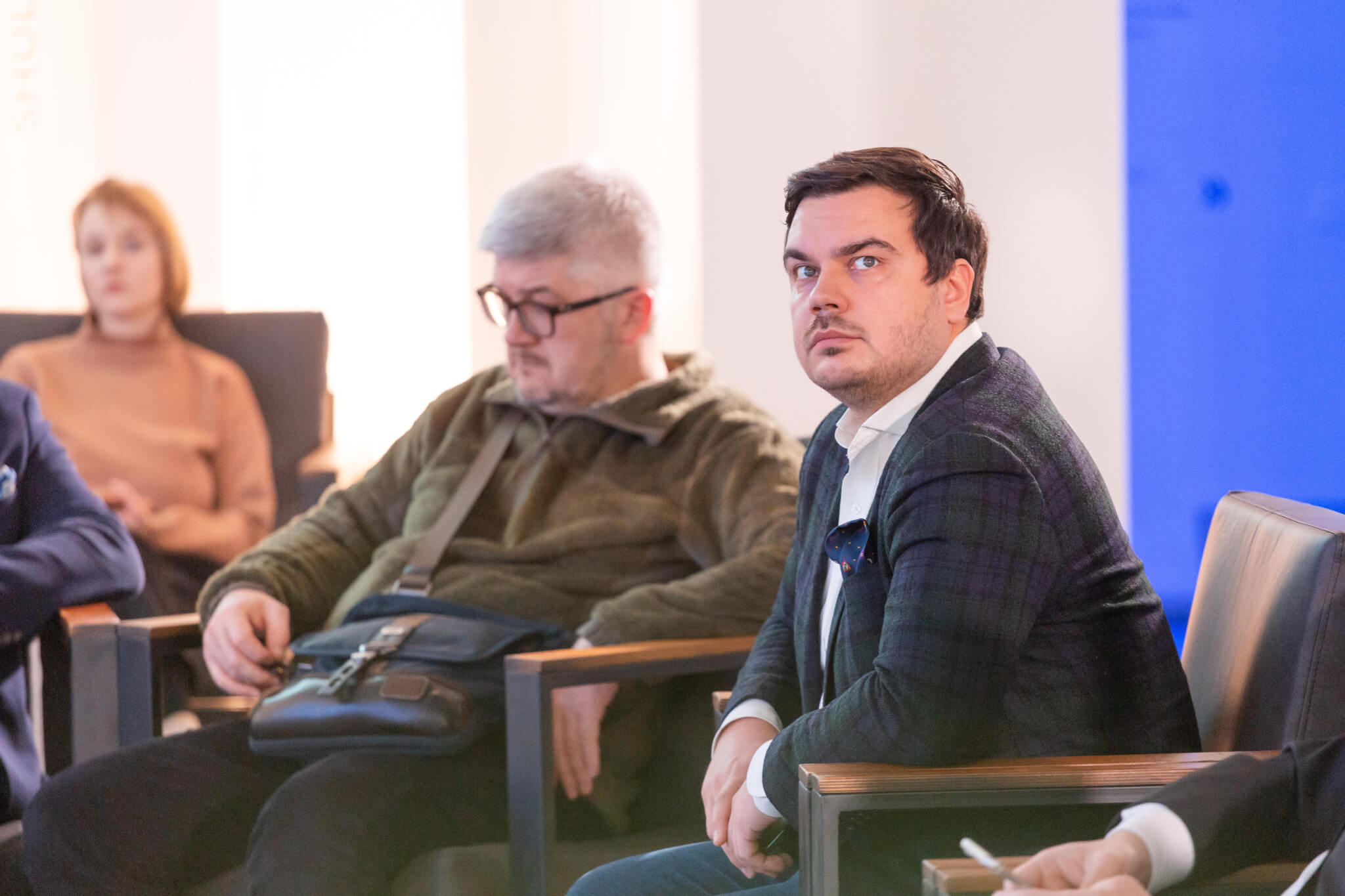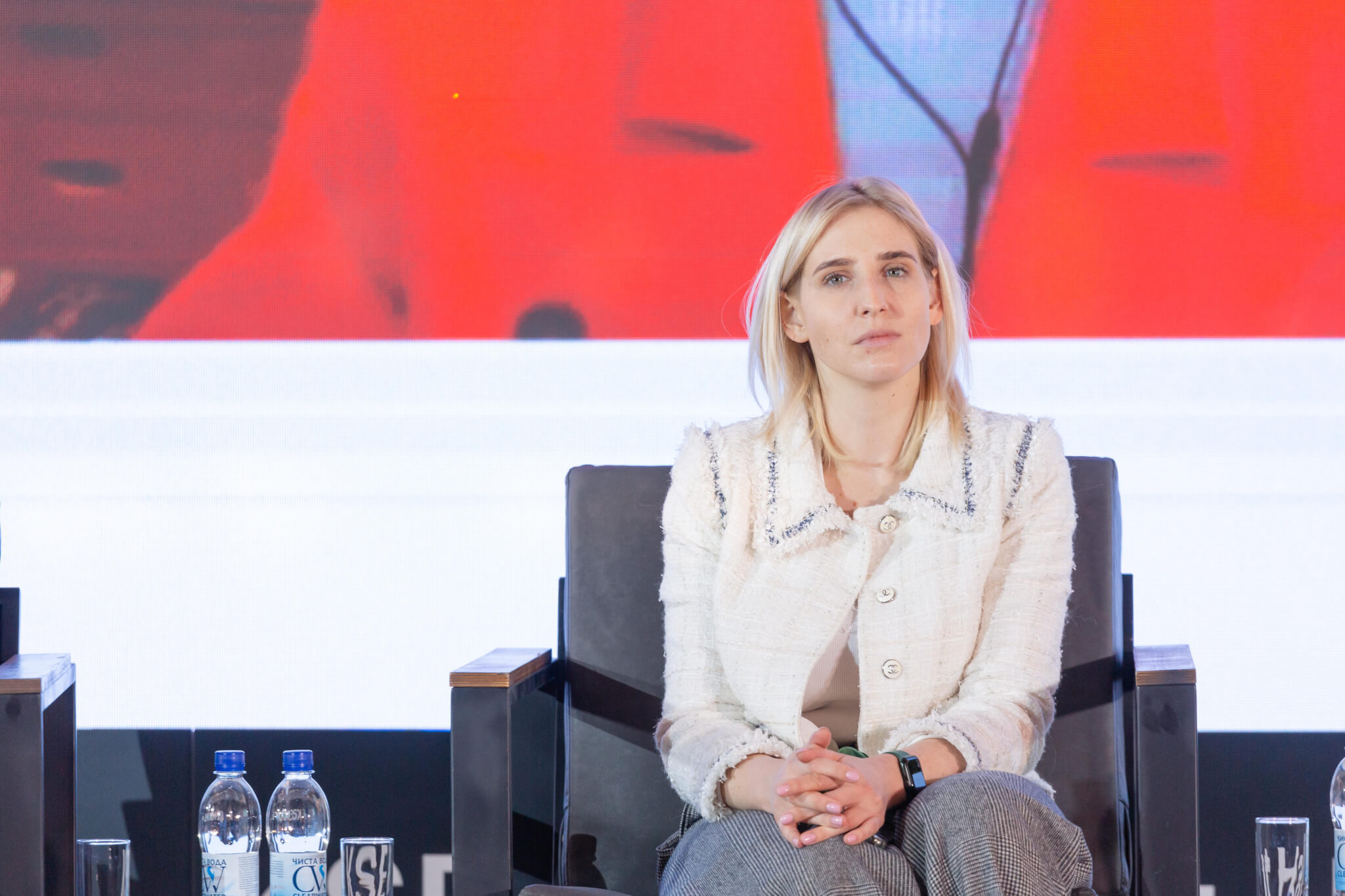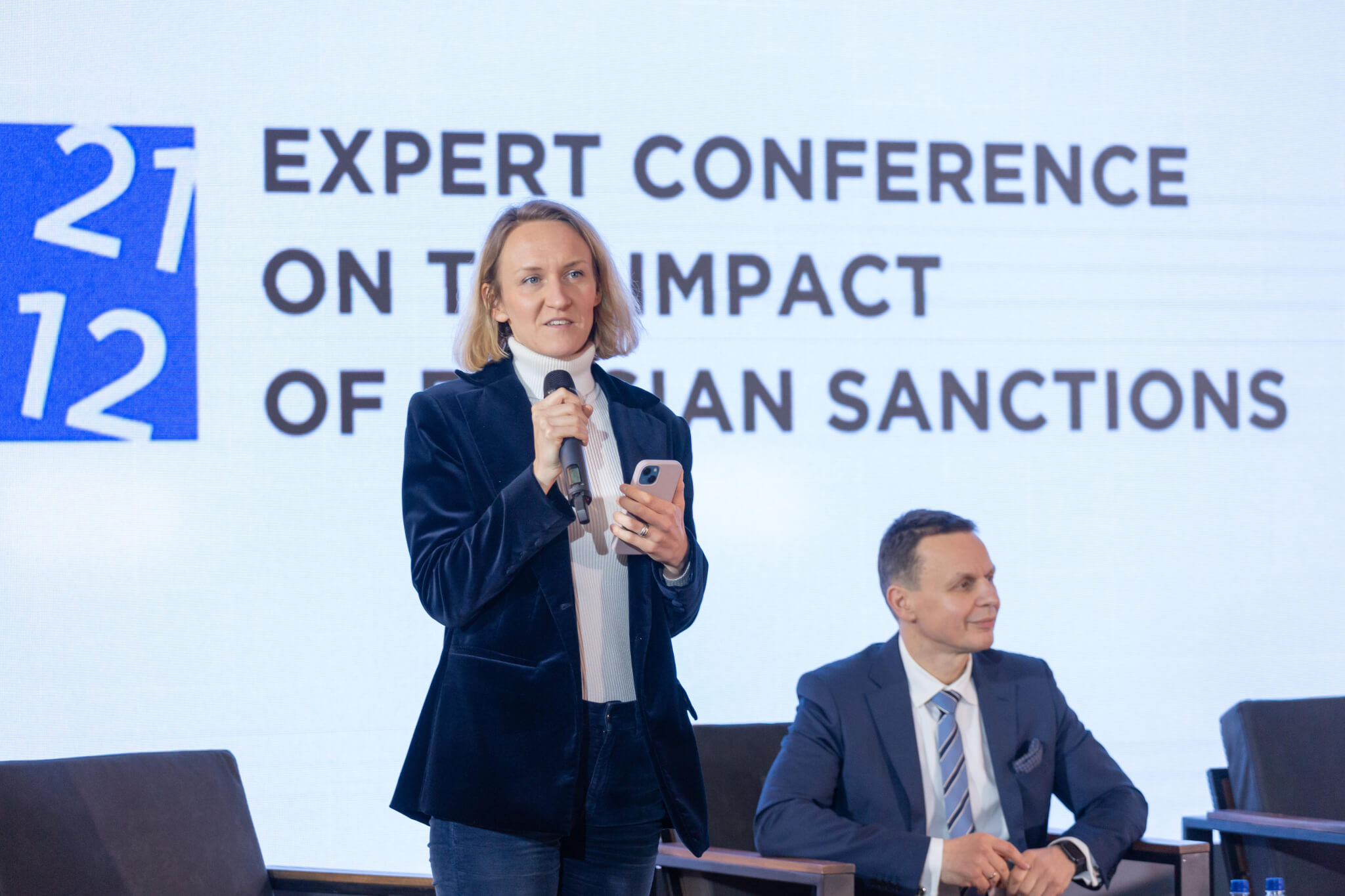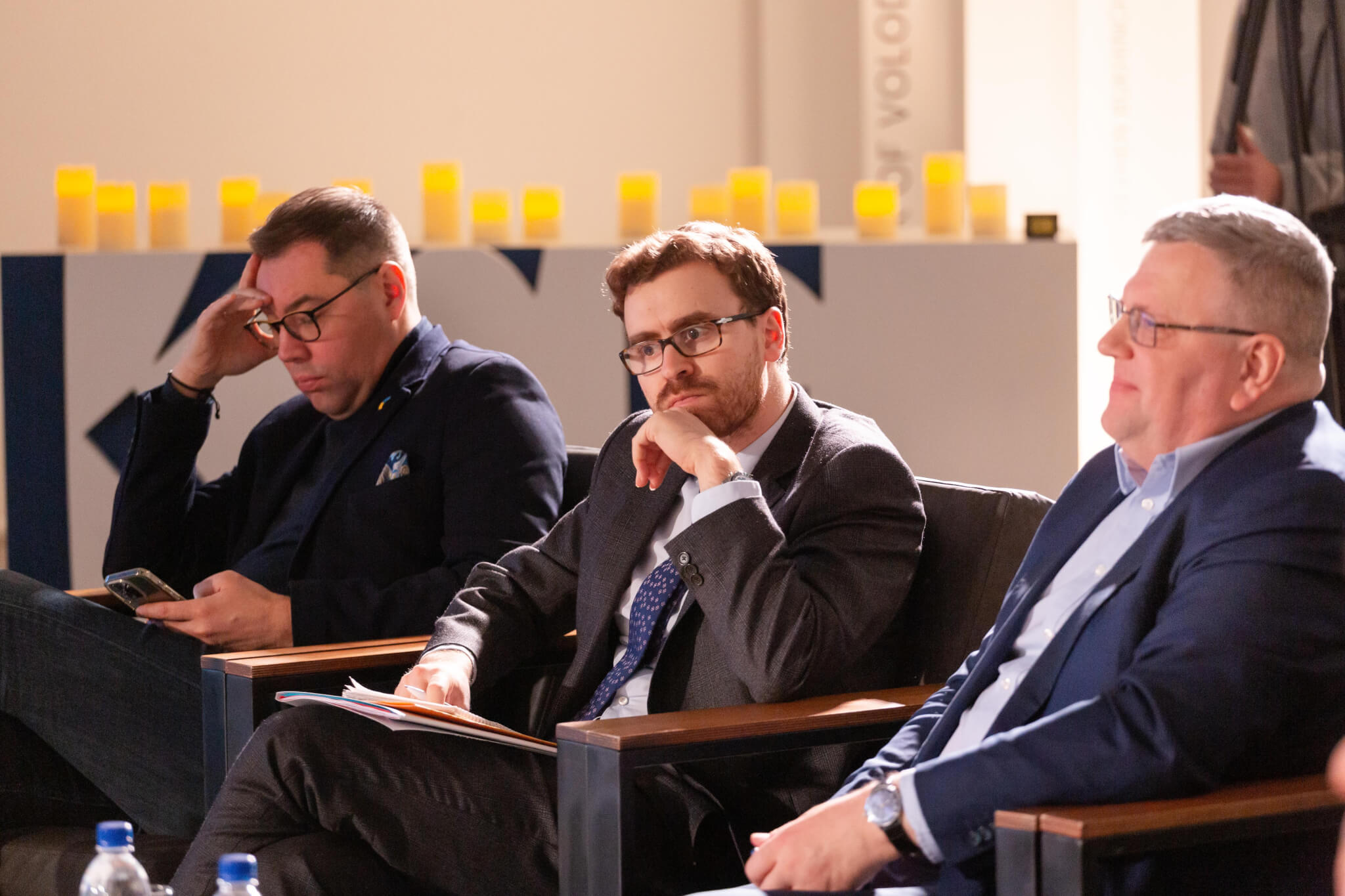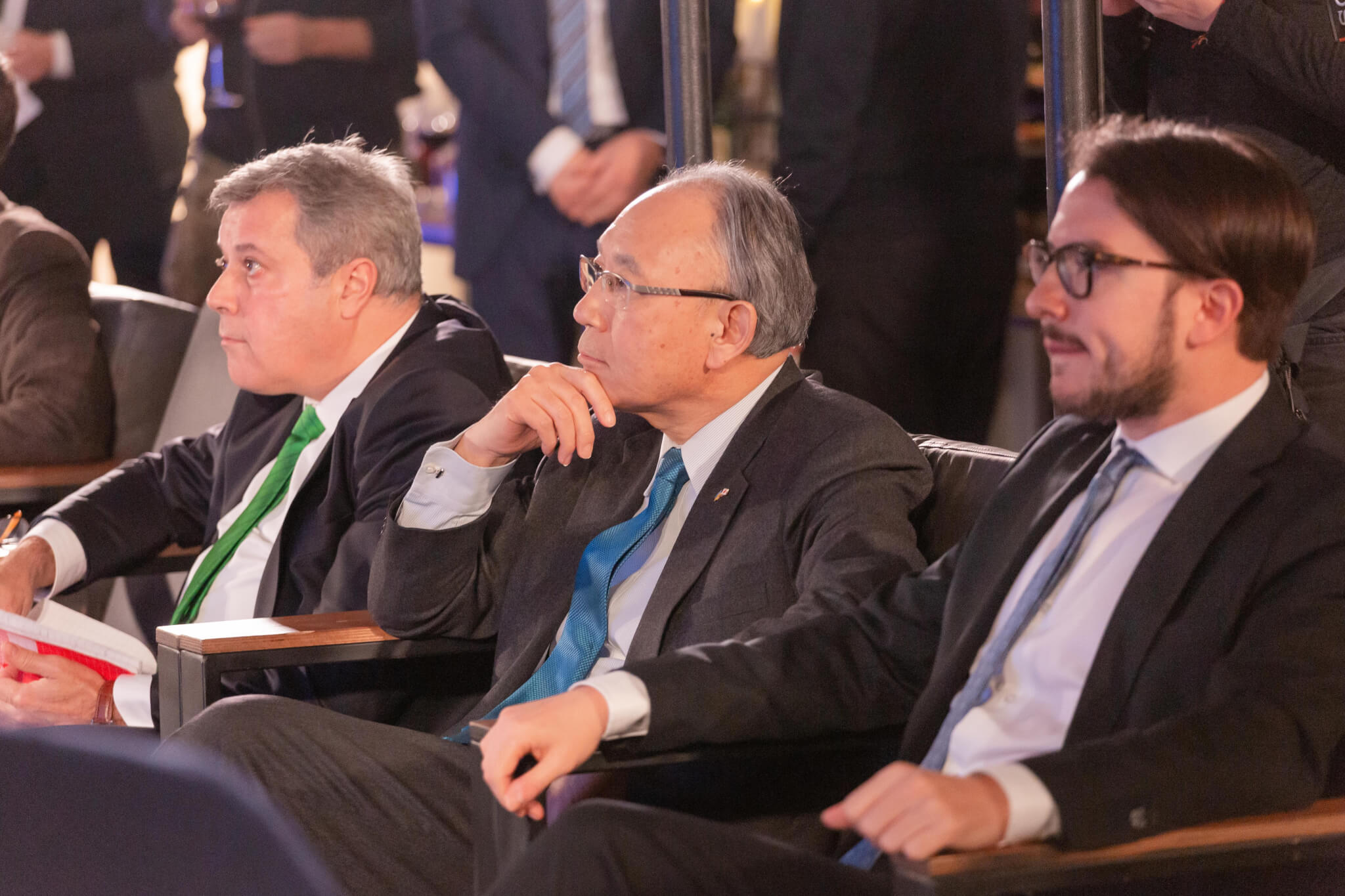- Kyiv School of Economics
- About the School
- News
- International experts discussed the effectiveness of sanctions and steps to increase pressure on the Russian Federation at the conference at the Kyiv School o Economics.
International experts discussed the effectiveness of sanctions and steps to increase pressure on the Russian Federation at the conference at the Kyiv School o Economics.
23 грудня 2022
On Wednesday, December 21, the “Expert Conference on the Impact of Sanctions against the Russian Federation” was held at the Kyiv School of Economics, organized with the support of the Government of Ukraine and the Yermak-McFaul International Sanctions Group. KSE Institute researchers and other experts presented reports on the effect of sanctions and the state of the Russian economy. They discussed the strategy of increasing pressure on the aggressor next year.
“Tough sanctions implemented as soon as possible will speed up the war’s end. Russia is a state that tries to use an army and force to achieve external political goals. This is evil, a threat to the whole world, and sanctions should punish Russia, make its economy and military industry weak, and make it impossible to wage war”, KSE President, member of the Sanctions Group Tymofiy Mylovanov.
The event was also attended by U.S. diplomat, former U.S. Ambassador to Russia Michael McFaul, First Vice Prime Minister of Ukraine Yulia Svyrydenko, Deputy Head of the Office of the President of Ukraine Rostyslav Shurma, Minister of Finance of Ukraine Sergii Marchenko and Ambassador of Ukraine to Germany Oleksii Makeiev.
During the first panel discussion “Impact of sanctions on the Russian economy”, experts concluded that sanctions are working and their cumulative effect is becoming more and more noticeable for the aggressor.
In particular, KSE Senior Economist Ben Hilgenstock noted that despite the Russian Federation’s ability to continue the war in the face of sanctions pressure, economic indicators currently show a stressful state of the Russian economy and the approaching turning point in 2023. Russia has already lost access to half of its gold and foreign exchange reserves and is rapidly losing income from exporting energy carriers and other goods.
Elina Ribakova, Non-Resident Fellow at Bruegel, Deputy Chief Economist at the Institute of International Finance, agreed. She noted that due to the thoughtful actions of the Central Bank of the Russian Federation, the aggressor’s economy was able to avoid the crisis. However, significant expenses for supporting the economy against the background of further reduction of income from energy exports will make the financial system of the aggressor less and less stable.
Borys Dodonov, Head of the Center for Energy and Climate Studies, Kyiv School of Economics, emphasized that Russia is losing the gas war it has declared against the West. The Kremlin cannot redirect the gas exported to the EU to other markets, due to which production may decrease by 111 billion cubic meters this year. As for oil – to attract buyers in Asian markets, Russia is forced to offer a discount on its resource at $35 relative to Brent. Additionally, that resulted in a loss of about $50 billion in revenue this year.
Dr. Benjamin L. Schmitt, Project Development Scientist at Harvard University, Senior Fellow for Democratic Resilience at Center for European Policy Analysis, Rethinking Diplomacy Fellow at Duke University Center for International and Global Studies, also added that one of the main tasks for increasing pressure remains the reduction of the price cap for Russian oil, which is currently set at $60 per barrel.
International business is also leaving Russia, as told by Jeffrey Sonnenfeld, professor at Yale School of Management. The private sector voluntarily started to withdraw from the Russian Federation, which today has reached an unprecedented scale. He noted that Russia does not bring anything to the world market except raw materials, food, and fuel. However, the EU no longer needs Russian gas.
Daria Sofina, coordinator of the sanctions project of the NACP, noted significant achievements in expanding personal restrictions against individuals and legal entities associated with the Kremlin. In particular, almost 2,000 individuals and legal entities have been subject to individual sanctions in the USA, over 1,600 in the EU, and 1,500 in Great Britain. At the same time, the undisputed leader in the number of individual restrictions remains Ukraine, which has applied sanctions against about 5,000 people.
Despite the tangible consequences of the imposed sanctions against Russia, the pressure must continue to increase to deprive the aggressor of the ability to finance the war and bring Ukraine’s victory closer.
During the second discussion panel “Lessons learned and priorities for the next year: energy, finance, IT, individual sanctions, trade” the conference participants outlined directions for the work of the sanctions coalition next year.
Jacob Nell, Senior Research Fellow, Kyiv School of Economics, outlined three critical targets for sanctions: energy, the financial system, and people. We need to set an oil price cap at $35 a barrel and limit gas purchases, expand sanctions against Russian banks and force international players to leave the Russian Federation, and be more aggressive in imposing sanctions on individuals associated with the Kremlin.
Eddie Fishman, Senior Research Scholar, Columbia University’s Center for Global Energy Policy, emphasized the expansion of sanctions against Russian energy exports. So far, oil and gas revenues have helped Russia stay afloat, so energy sanctions should become a priority for Ukraine’s allies. It is necessary to introduce secondary sanctions for insurance and transport companies that support Russian exports, to limit the volume of supplies, and to limit the groups of goods and services on which the Russian Federation can spend the received profit.
Dr. Craig Kennedy, Center Associate, Davis Center for Russian and Eurasian Studies, Harvard University, and Former Vice Chairman, Bank of America Merrill Lynch, supported this. He added that the oil market available to Russia would be halved under the sanctions. However, it is still five times greater than the total export of the Russian Federation, so it is essential to deprive Russia of the opportunity to realize its resource.
Darta Tentere, Policy Officer at European Commission: DG FISMA, assured that the EU would continue the policy of criminal punishment for sanctions violations, as well as finding and establishing the ownership of Russian oligarchs’ hidden assets.
Alexandra Vasylenko, Special Envoy on Russian Sanctions and Humanitarian Aid in the Ministry of Foreign Affairs of Ukraine, emphasized the importance of restrictions coordination, the expansion of the sanctions coalition, and the introduction of secondary sanctions. That will make it possible to deprive the aggressor of ways to evade sanctions and increase their effectiveness.
Vladyslav Vlasiuk, Assistant Coordinator, International Working Group on Russian Sanctions, also noted the institutionalization of the Ukrainian sanctions initiative at the international level. Yermak-McFaul Group will continue to monitor the effectiveness of the introduced restrictions and make maximum efforts to increase the sanctions pressure on Russia.
